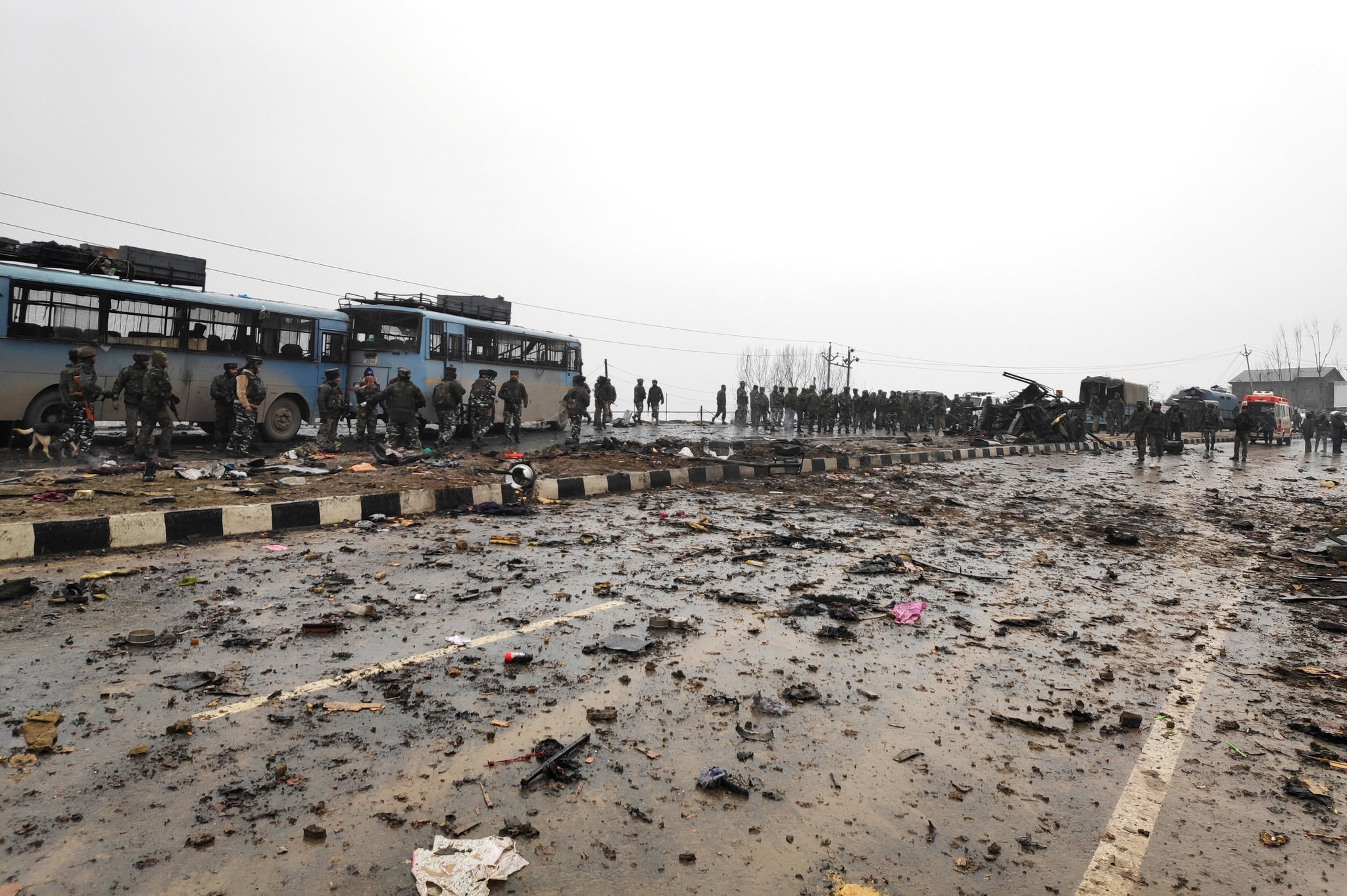


On December 16, India celebrates Vijay Diwas to honour the 1971 Indo-Pak war and pay tribute to the soldiers who fought for the nation's victory. The conflict was a response to Pakistan's genocide in East Pakistan and saw brave Indian soldiers sacrificing their lives for the cause of independence. With remarkable displays of strength and strategy, India emerged victorious and this day serves as a reminder of the resilience and courage of the Indian armed forces.
East Pakistan: A Troubled History and India's Role
Background
East Pakistan (now Bangladesh) was a province of Pakistan from 1947 to 1971. It was geographically separated from West Pakistan by a thousand miles of Indian territory. The Bengali people of East Pakistan faced discrimination and neglect from the predominantly Punjabi-dominated government in West Pakistan. This led to growing discontent and demands for autonomy.
The 1971 Indo-Pak War
In 1971, the situation in East Pakistan deteriorated into a full-scale civil war between the Pakistani government forces and Bengali rebels. India provided support to the rebels, and the war escalated into a direct conflict between India and Pakistan.
The Indian armed forces launched a massive offensive into East Pakistan on December 3, 1971. The Pakistani forces were overwhelmed by the Indian onslaught and surrendered on December 16, 1971. This victory led to the independence of East Pakistan as Bangladesh.
India's Role
India's role in the 1971 Indo-Pak war was significant. Indian forces played a decisive role in the liberation of East Pakistan. The victory not only marked a major diplomatic and military triumph for India but also had a profound impact on the region.
Top 5 FAQs
1. Why did India support the Bengali rebels?
India supported the Bengali rebels primarily due to humanitarian concerns and the shared cultural and linguistic heritage with Bangladesh.
2. What was the significance of India's victory in the 1971 war?
India's victory not only liberated Bangladesh but also dealt a significant blow to Pakistan's military and strategic ambitions in the region.
3. What is Vijay Diwas?
Vijay Diwas is celebrated in India on December 16 to commemorate the victory in the 1971 Indo-Pak war.
4. What are the current relations between India and Bangladesh?
India and Bangladesh enjoy close and friendly relations, with strong economic, cultural, and political ties.
5. Is there any controversy surrounding India's role in the 1971 war?
Some critics have accused India of interfering in Pakistan's internal affairs by supporting the Bengali rebels. However, the Indian government maintains that its actions were justified on humanitarian grounds.

The Indian National Congress (INC) has announced its plans to launch a month-and-a-half-long campaign in Jammu and Kashmir on April 22. The purpose of the campaign is to demand the restoration of statehood and to further the “Save the Constitution” movement. With the recent appointment of Syed Naseer Hussain as the new J&K in-charge, the party hopes to regain its lost support in the Union Territory. This campaign comes at a crucial time, as former supporters of the Congress leader Ghulam Nabi Azad have recently dissolved their party, raising questions about their political future. The Congress hopes to use this opportunity to highlight the BJP's failures in empowering elected governments and its betrayal over statehood.

Thousands of citizens in Pune are rallying together through an online petition to demand the protection of their city's hills and hill slopes from any construction. The petition is addressed to the former Pune Municipal Commissioner and Chairman of the state-appointed Committee on Bio-Diversity Park and Hill Top Hill Slopes. The citizens are concerned that the committee's review may result in allowing construction on the hills, while strict measures have already been mandated by the government to prevent it. The citizens stress the importance of preserving these natural areas for the city's ecological balance and urge the government to uphold its promise to future generations.

After the devastating terror attack in Pahalgam, Jammu and Kashmir, India has suspended the 1960 Indus Waters Treaty with Pakistan. This decision was made during a key meeting chaired by Union Home Minister Amit Shah, with discussions on potential actions being taken against Pakistan. As tensions between the two countries continue to escalate, Indian leaders have condemned Pakistan for their involvement in the attack and have vowed to take strong measures in response.

The Indian Army made its first major move since the Pahalgam terror attack on April 22, as they killed top Lashkar-e-Taiba (LeT) commander Altaf Lalli in an encounter in Jammu and Kashmir's Bandipora district. The security forces are on the hunt for the terrorists responsible for the brutal killing of 26 civilians and have launched a massive anti-terror operation. In other developments, Indian Army Chief General Upendra Dwivedi visited Srinagar for a security review meeting and the authorities demolished the houses of two suspected terrorists involved in the Pahalgam attack.

In a hearing at the Supreme Court, the bench rebuked Congress leader Rahul Gandhi for his "irresponsible" comments about freedom fighter Vinayak Damodar Savarkar. The judges highlighted the need to show respect for India's freedom fighters and questioned whether Gandhi was aware of his grandmother and Mahatma Gandhi praising Savarkar. The court also stayed an Allahabad High Court order that refused to dismiss a lower court's summons against Gandhi over his alleged remarks about Savarkar.

The Supreme Court has stepped in to warn Congress MP Rahul Gandhi over his comments about India's independence activist Veer Savarkar, staying a trial court's summons to the politician. The top court emphasized that Savarkar is a highly respected figure in Maharashtra and stated that no one would be allowed to make derogatory remarks about freedom fighters. The court also pointed out that Gandhi's family has had a history of praising Savarkar and Gandhi himself has been warned that the court will take suo motu cognizance of any such remarks. Additionally, the article also mentions an attack in Jammu and Kashmir that has led to heightened tensions between India and Pakistan.

In a successful operation by the security forces, a Lashkar-e-Taliba (LeT) terrorist associate, identified as Altaf Lalli, was killed in an ongoing encounter in the Bandipora district of Jammu and Kashmir. The encounter began after the security forces received intelligence about the presence of terrorists in the area. Two security personnel have also been injured in the exchange of fire and are currently undergoing treatment at a nearby hospital. The clash highlights the continued efforts of the security forces to combat terrorism in the region.

The Telangana-Chhattisgarh border is a hotbed of tension as security forces step up their efforts to root out Maoist activity from the region. Top Maoist leader Hidma is the target of current high-security operations, with forces strategically advancing through previously inaccessible areas. With mounting pressure, sources indicate that the hold of the Maoists in the region is gradually weakening, making for a tense and critical situation.

As the nation grapples with the aftermath of a terror attack in Pahalgam, security forces are undertaking a massive operation in the dense Karregutta hills forest to eliminate the heart of Naxal command. This operation, involving 7,000 personnel and cutting-edge technology, aims to strike a blow at Naxalism by targeting top leaders of the PLGA Battalion No. 1. This bold move by the CRPF, with the Director General personally overseeing the operation, marks a turning point in the fight against Maoist insurgency. With five Naxals already killed and more likely to come, the operation is being hailed as a decisive victory and could potentially spell the end of Naxalism in India.

The US Government has publicly criticized The New York Times for its reporting on the recent terror attack in Pahalgam, Kashmir, calling attention to the difference between the newspaper's use of "militant" instead of "terrorist." This choice of words is not only misleading but also minimizes the severity of the attack, which was claimed by a Pakistan-based group with links to Lashkar-e-Taiba. The US House Foreign Affairs Committee took to social media to point out the error and highlight the real nature of the attack, noting that it has significant implications for regional security.